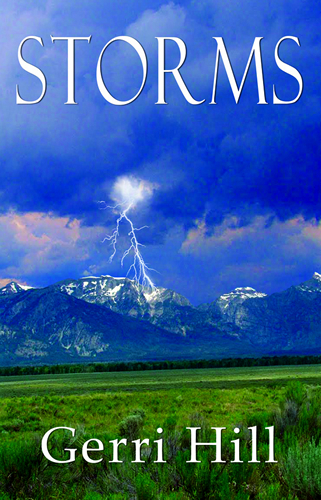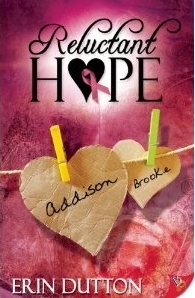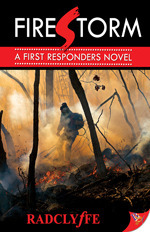Jae's Blog, page 50
September 6, 2011
Review — "Strange Bedfellows" by Q. Kelly
Ride the Rainbow Books
August 2011
75,000 words
Frances Dourne is the daughter of a pastor and the president of "Gay is a Choice," an organization that wants to "help" gay people choose a straight life, just like Frances did many years ago. But Frances has stopped believing in the principles of her company long ago.
straight life, just like Frances did many years ago. But Frances has stopped believing in the principles of her company long ago.
Now she's preparing to come out to her family and to the public.
She hires a prostitute, Elena, to have a sounding board for her coming-out plan.
At first glance, these two women couldn't be more different, but if you look more deeply, they have a lot in common. They both have suffered losses and kept secrets. Both lost a child, Elena when her ten-year-old son drowned and Frances when her husband, an ex ex-gay, came out and kidnapped their three-year-old daughter ten years ago.
At first, both stick to the rules of their professional relationship, but they quickly grow closer. The growing intimacy between them scares them both.
"Strange Bedfellows" is a captivating novel. I stayed up until 3 a.m. because I wanted to find out more about the interesting characters. The author avoids head hopping and brings us deeply into the characters' point of views. The main characters are three-dimensional and likable; they struggle with their fears and I couldn't help rooting for them.
Some issues could have been explored more fully toward the end, but it's still a very satisfying read.
The editing was very well-done too (just a typo or two), so I highly recommend this self-published author's novel.
Filed under: Reading Tagged: Q. Kelly, review, Strange Bedfellows








September 4, 2011
Review — "Just Like That" by Karin Kallmaker
Bella Books
November 2005
284 pages
31-year-old Syrah Ardani doesn't want commitment, and she's not enthusiastic about her best friend's plan to settle down. All Syrah wants is to focus on her family's winery instead. But then she finds out that her aging father made the winery a corporation and is now deeply in debt.
 Toni Blanchard, a corporate turnaround specialist, is sent to assess the situation. Toni's lover of two years just left her, and she has no romantic notions left.
Toni Blanchard, a corporate turnaround specialist, is sent to assess the situation. Toni's lover of two years just left her, and she has no romantic notions left.
When they meet, they don't trust each other. Syrah is downright hostile at first since she thinks Toni is helping to take the family business away from her. Toni is used to doing business without emotions, but this time, she finds it impossible not to get emotionally involved.
"Just Like That" is a solid novel from a writer who knows what she's doing. The characters, especially Syrah, have a life and people in them even before meeting each other. Karin Kallmaker also incorporated the wine lingo nicely — just enough to make me believe that this is really what Syrah does for a living, but not enough to distract or bore the reader.
What I didn't like is the fact that the conflict keeping them apart relies partly on a misunderstanding/lack of communication and trust. And considering that they avoid each other at first, the declaration of love comes a bit soon.
But at least the author has Syrah prove her trust in Toni in the end — a good move!
Editing is always a bit hit-and-miss with Bella Books, but this one is well edited (except for a few comma issues).
Filed under: Reading Tagged: Karin Kallmaker, review








Review — "Storms" by Gerri Hill
July 2011
264 pages
Carson Cartwright hasn't seen her family for twelve years. After her mother died and her father basically threw her out because he blamed her for her mother's death, she spent years pretending to be satisfied with one-night stands and her rich friends. Now her twin brother calls to tell her their father is dying and their brothers are running their family ranch into the ground.
When Carson reluctantly returns home, she meets Kerry Elder, who is just starting her own consulting business and wants to co nvince Carson's brothers to turn the ranch into a guest ranch.
nvince Carson's brothers to turn the ranch into a guest ranch.
Both feel a connection from the start, but Kerry is straight – or so she thinks – and one of Carson's brothers has his eye on her.
"Storms" is a solid romance with good editing. Some things could have been explored more deeply, for example, Carson never really has a long conversation with her brothers and all the old feelings and resentments are never resolved.
At times, it was hard to keep her brothers apart, because their names were too similar (Cody, Colt, Chase, and Chance) and we don't see enough of them to give them distinct personalities.
Otherwise, the book provides a few hours of entertainment.
Filed under: Reading Tagged: Gerri Hill, review








Review — "Wild" by Meghan O'Brien
Bold Strokes Books
June 2011
288 pages
I really liked Meghan O'Brien's Endgame and Battle Scars, but while Wild isn't badly written per se, I didn't like it as much. It didn't have enough  world building to work as paranormal fiction. Selene is the only shape-shifter/werewolf around, and she doesn't even seem to wonder if there are others like her.
world building to work as paranormal fiction. Selene is the only shape-shifter/werewolf around, and she doesn't even seem to wonder if there are others like her.
It's more of a romance than a paranormal novel, but even the romance didn't fully convince me. For someone who avoided emotional attachments for many years, she let herself enter into a relationship a bit too quickly.
If you are looking for a good paranormal fiction novel, you'll probably be disappointed.
Filed under: Reading Tagged: Meghan O'Brien, review, Wild








Review — "Reluctant Hope" by Erin Dutton
Bold Strokes Books
June 2011
288 pages
Songwriter Brooke Donahue's best friend, Diane, just died of cancer. Brooke is still full of unexpressed grief and anger a nd wants nothing to do with Diane's support group or anything else related to cancer.
nd wants nothing to do with Diane's support group or anything else related to cancer.
To honor Diane, she participates in a fundraiser for cancer research and has to work with Addison Hunt, a survivor of breast cancer. Even before Diane's death, Brooke closed herself off, afraid to let herself feel too deeply, and now she doesn't want to fall in love with someone she might end up losing.
The author took a bit of a risk with the ending, but I really liked it and thought it was perfect for the book.
Filed under: Reading Tagged: Erin Dutton, Reluctant Hope, review








Review — "Keeper of the Piece" by Lesley Davis
Windstorm Creative
November 2000
200 pages

Tatum "Tate" Belan is the "Keeper of the Piece" (and no, that's not a spelling mistake), which means she's the guardian of the mountain Turrenoc. She's also the keeper of a secret: She's an animal adept, who can talk to animals. When her previous lover found out what Tate is, she left her, and Tate has lived a reclusive life ever since.
 Dr. Lorrah Gilden is an adept too, but she's a plant adept. Her skills include feeling the healing potential of plants. She works for Estros, a large and powerful research company. One day in late fall, she shows up on Tate's doorstep and wants Tate's help in finding the Missourose, a half-mythical plant with incredible healing powers. Lorrah's ancestor had found the plant, but a few pages of his diary, describing where to find the plant, are missing.
Dr. Lorrah Gilden is an adept too, but she's a plant adept. Her skills include feeling the healing potential of plants. She works for Estros, a large and powerful research company. One day in late fall, she shows up on Tate's doorstep and wants Tate's help in finding the Missourose, a half-mythical plant with incredible healing powers. Lorrah's ancestor had found the plant, but a few pages of his diary, describing where to find the plant, are missing.
Reluctantly, Tate agrees to help her, and they start their trek up the mountain. Since winter is approaching, it becomes a race against time.
"Keeper of the Piece" is a quick read (200 pages or less), and it focuses as much or more on the romance than on the fantasy aspect. As a romance, it works even though it's a short novel, because the two main characters meet at the very beginning of the book and stay together throughout, so they are in constant interaction.
There are a few issues that are just mentioned, but not fully explored (Tate's past as a warrior or the danger that might lurk inside of Estros, Lorrah's company). Maybe those issues will be further explored in the later books of the series, but they didn't seem necessary for this book.
The book had a few editing issues (overuse of adverbs, an unclean POV, and a few spelling mistakes, e.g., naval vs. navel). On the plus side, the book also had a few nice concepts (I loved the idea of Tate hibernating in winter), and I couldn't help but like Teeko, Tate's cute squirrel.
So all in all, it's a short but good read. If you like fantasy with a heavy dose of romance, I recommend it.
Filed under: Reading Tagged: keeper of the piece, Lesley Davis, review








Review — "Firestorm" by Radclyffe
Bold Strokes Books
July 2011
288 pages
"Firestorm" is the second book in Radyclyffe's First Responder series.
30-year-old Mallory "Ice" James is the captain of a smokejumper crew and about to train a new group of roo kies. A year ago, she lost two of her people in a fire and she's determined to keep control this year. Under no circumstances does she want to have even friendly feelings for another firefighter.
kies. A year ago, she lost two of her people in a fire and she's determined to keep control this year. Under no circumstances does she want to have even friendly feelings for another firefighter.
Her well-ordered life is interrupted when a new rookie is transferred without her knowledge.
Jac Russo is the daughter of a senator and determined to prove herself.
When they meet, there's an instant attraction, but not necessarily an instant liking of each other.
Technically, the book is well-written – good editing and the head hopping is so controlled that it's not annoying. But I didn't feel close to any of the characters. The ending felt rushed, for example, the situation with Jac's father was never resolved.
I also expected to have them fight a fire and Mallory overcoming her self-doubts after losing two of her men – but it didn't happen.
If you have never read one of Radclyffe's books before, I suggest you read "Safe Harbor" or "Turn Back Time," not "Firestorm."
Filed under: Reading Tagged: Firestorm, Radclyffe, review








Review — "Damaged in Service" by Barrett
Affinity e-book Press
July 2011
250 pages
39-year-old Special Agent Zeke Cabot has a lot going on. She just wrapped up an undercover assignment, investigating the murders of homeless people in Chicago. While she managed to catch the killer, she was injured and is now experiencing symptoms of PTSD. On top of that, she's also worrying about her mother who shows early signs of Alzheimer's.
She retreats to New Mexico for a vacation, but bad luck seems to follow her when she gets hurt in a hiking  accident.
accident.
Anne Reynolds, a local nurse, finds Zeke and takes care of her injuries. Even though Anne is straight and has been hurt by her ex-husband, she starts falling in love with Zeke.
What I like about "Damaged in Service" is that falling in love doesn't instantly solve all problems. Both Zeke and Anne have insecurities and issues that threaten to keep them apart, but both are willing to work on being together.
I also enjoyed the beautiful descriptions of New Mexico.
At times, there almost seemed too much going on (Zeke working undercover, a good friend and colleague being killed, the sting operation in Paris, terrorist connections, the hiking accident, an attack), but I appreciated the author taking the time to develop the relationship between the two women.
I noticed several editing issues in the book, including incorrect punctuation of dialogue.
This book, number one in a series, doesn't have a resolution, so I'll reserve final judgment until I've read the next book and see how the author wraps up the different storylines.
Filed under: Reading Tagged: Barrett, Damaged in Service, review








August 30, 2011
Showing emotions
A fellow writer asked me to explain one of the examples in my "common mistakes in lesbian fiction" list, and I thought I might as well post the explanation on my blog so other writers can benefit as well.
The example in question was about showing emotions instead of telling them. I blogged about the golden rule, show don't tell, before. Here's a short recap:
Telling means that you as the writer tell the reader what to think. You hand readers the conclusion instead of letting them think for themselves. That's not a good thing, because you end up with a passive reader who is not fully involved in the reading experience.
Example:
She felt angry.
Showing means you give readers enough details to make their own conclusions.
If the "she" in the sentence above is the POV character, you need to describe what feeling angry feels like from the inside. Describe the physical sensations. You can also use thoughts, dialogue, and actions to show her emotions. My posts on body language might help with that.
Example:
Heat shot up her neck until she thought steam was coming out of her ears.
Bastard! She stormed toward him, then stopped. Calm down. He's not worth it.
If she's not the POV character, but someone the POV character observes, you need to describe what the angry person looks like from the outside. You can describe facial expression, body language, actions, or dialogue to show that the person is angry.
Example:
Her fist smashed into the wall. "Goddamnit!"
Veins throbbed in her temples.
Her hands bunched into fists.
Remember that every character will reveal emotions such as anger in a different way — and some characters might not reveal their emotions at all. Some start shouting whenever they are angry. Others get really calm, with just a tightening of the lips giving them away.
So showing the way characters reveal emotions helps with characterization too. It shows us so much more than just that "she felt angry."
Any other question you have about writing, please let me know.
Filed under: writing tips Tagged: describing emotions, show don't tell, showing, telling








August 28, 2011
More POV violations
Most new writers struggle with point of view. They are so used to the pseudo-omniscient head hopping that they don't know how to write from a limited third person point of view.
I thought I would share a bit of advice.
Let's assume a novel has a paragraph like this:
A six-year-old boy with blond curly hair raced down the stairs, coming to a stop in front of a woman with the same blond curls.
The woman laughed and rolled her blue eyes, making the boy grin.
So what's wrong with this paragraph (besides the grammar issues—using a participle for sequential actions)?
The paragraph violates the rules of point of view.
The scene is told from the woman's POV. Let's name her Mandy. The boy is her son. Obviously, Mandy wouldn't think of herself as "the woman," and she has no reason to think about the color of her eyes. If we are in her POV, we should show her thoughts and emotions instead of showing her from the outside.
Mandy also wouldn't think of her son as "the boy." Use whatever name your POV character would use. And since she is very familiar with her son, she also wouldn't think about his age or the color of his hair.
If you are writing the scene from Mandy's point of view, you can't mention things she wouldn't notice or think about at that moment.
You can sneak in little pieces of description if you give the POV character a good reason for noticing things that she's familiar with.
In third person limited POV, the paragraph might read like this:
Ben raced down the stairs. When he skidded to a halt in front of Mandy, a tuft of blond curls fell into his eyes.
Mandy laughed and rolled her eyes, making him grin. "You need a haircut."
Mandy notices because mothers notice things like overdue haircuts. We're well within her POV. Her thoughts and actions also show us a bit of her personality (she's a good mother), and that's more important than letting the reader know her hair or eye color.
Filed under: writing tips Tagged: point of view, POV


















